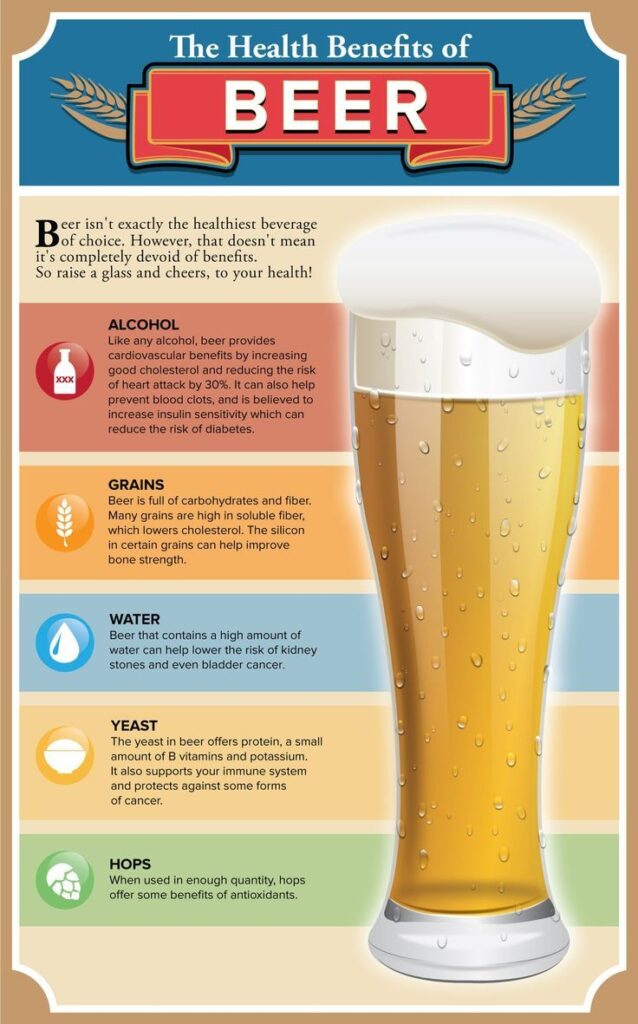Discover the surprising factors influencing how drunk you get after just a few beers. The science behind tipsy behavior revealed!
Table of Contents
Have you ever wondered how many beers it takes for you to feel drunk? Alcohol consumption affects individuals differently based on various factors, from metabolism to tolerance levels and body composition. In this blog post, we will delve into the science behind intoxication and explore the factors that influence how many beers it may take for someone to get drunk.
Alcohol Metabolism
Alcohol metabolism is a complex process that begins as soon as you take your first sip. When you drink alcohol, it is absorbed into your bloodstream through the stomach and small intestine. From there, the alcohol is metabolized primarily in the liver by enzymes that break it down into acetaldehyde and then into acetate, which is eventually eliminated from the body.
Factors such as age, sex, genetics, and overall health can influence how quickly your body metabolizes alcohol. For example, men generally have a higher volume of liver enzymes responsible for breaking down alcohol compared to women, which can lead to faster metabolism and potentially higher tolerance levels.
Individual Tolerance Levels
Alcohol tolerance refers to how much alcohol a person can consume before feeling intoxicated. This tolerance can vary widely among individuals and can change over time depending on factors such as frequency of self-awareness-and-personal-development/” classname=”texta-link”>alcohol consumption and genetics.
Regular drinkers may develop a higher tolerance to alcohol due to their bodies becoming more efficient at metabolizing it. Conversely, someone who rarely drinks may feel the effects of alcohol more quickly and intensely after consuming the same amount.
Influencing Factors of Intoxication
Several factors can influence how many beers it takes for someone to feel drunk. Body weight and composition play a significant role, as alcohol is distributed throughout the body based on factors such as muscle mass and body fat percentage.

Image courtesy of thebeerthrillers.com via Google Images
Drinking on an empty stomach can also affect intoxication levels, as food helps slow down the absorption of alcohol into the bloodstream. Mixing alcohol with prescription medications or other substances can amplify its effects and lead to dangerous levels of intoxication.
Conclusion
Understanding the factors that influence how many beers it takes for someone to get drunk is essential for practicing responsible alcohol consumption. By being aware of your own tolerance levels, metabolism, and the influencing factors of intoxication, you can make informed decisions about how much to drink and when to stop.
Remember, it is always important to drink in moderation and know your limits to prevent alcohol-related harm. If you are unsure about how alcohol affects you personally, consider seeking guidance from a healthcare professional or a trusted source.
How does alcohol metabolism differ between men and women?
Men generally have more liver enzymes that break down alcohol, leading to faster metabolism and potentially higher tolerance levels compared to women.
Can tolerance to alcohol change over time?
Yes, tolerance to alcohol can change over time depending on factors like frequency of consumption and genetics. Regular drinkers may develop a higher tolerance, while infrequent drinkers may feel the effects more quickly.
How does body composition affect intoxication levels?
Body weight and composition play a significant role in how alcohol is distributed and metabolized in the body. Muscle mass and body fat percentage can influence how quickly someone feels intoxicated after consuming alcohol.
Why is it important to understand influencing factors of intoxication?
Understanding the influencing factors of intoxication is crucial for practicing responsible alcohol consumption. Knowing how factors like metabolism, tolerance levels, and body composition affect intoxication can help individuals make informed decisions about their drinking habits.
Generated by Texta.ai Blog Automation


Leave a Reply